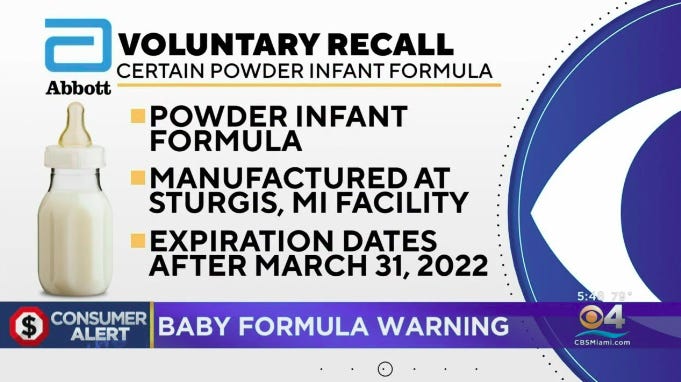DI Report: Abbott Labs Hurts its Credibility by Masking an SEC Investigation
Disclosure Games®
“Disclosure Games” is a term we use to highlight those public companies engaging in disclosure practices we find as misleading, confusing, evasive, or otherwise lacking the transparency needed for investors to make well-informed investment decisions regarding a potentially material exposure.
In this note, we argue Abbott is playing Disclosure Games by the selective omission of key words investors typically screen for when looking to see if a company has regulatory or legal exposure. By doing so, Abbott now risks investors viewing it as a company willfully trying to deceive them. In our opinion, that perception is well placed.
Before we share the offending disclosure language, let’s quickly review the history that brought Abbott – and us, to this moment.
After several infants fell ill in early 2022, regulators found unsanitary conditions at an Abbott factory in Sturgis, Michigan. At the peak of the crisis, Abbott was regularly in the news over the matter and, eventually, voluntarily recalled its powdered formula and shut the plant.
The DI Research History: We found the SEC has been investigating Abbott since at least Jun-2023, with ongoing enforcement proceedings now confirmed two times since, most recently as of 05-Aug-2024.
Abbott is on the DI Watch List of companies with confirmed, undisclosed SEC investigations, as a search of the company’s SEC filings, back to Jul-2021, found no clear disclosure of SEC investigative activity.
Notable Item: In the 10-K filed on 17-Feb-2023, and again without update in the 10-K filed 16-Feb-2024, we see this,
In December 2022, Abbott received a subpoena from the Enforcement Division of the Commission requesting information relating to Abbott’s powder infant formula business and related public disclosures.
DI's Take: We’ve never once seen a public company describe an SEC subpoena as Abbott does in its filings.
Despite the sleazy clever word-smithing regarding a subpoena from, “the Commission” as cited above, at no time does Abbott make it clear it has a formal SEC investigation that likely started well before Dec-2022.
Writing disclosures in this manner does more harm than good. Worse, few professional investors would have been rattled to learn the SEC was one of the many regulators looking into Abbott’s baby formula problems at the time. Instead, they now see a company that’s demonstrated a willful – and twice repeated, intent to deceive them.
So why do this? To get further insight, we suggest taking a look at this New York Times article, published in Sep-2022. In it, the author describes Abbott’s scorched-earth tactics from long before the 2022 recall when it came to accusations its baby formula might not be safe.
How Abbott Kept Sick Babies From Becoming a Scandal
For our part, we will keep it simple: When it comes to material exposures, investors require clarity, not sleazy clever word games. It’s well past time Abbott fixes this.



